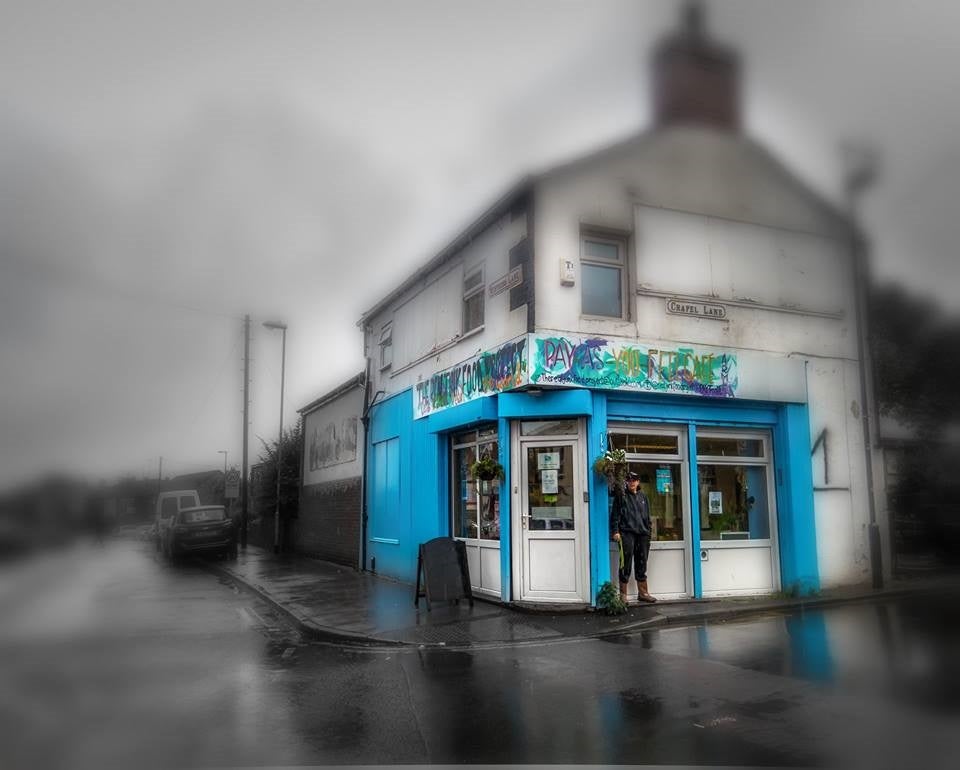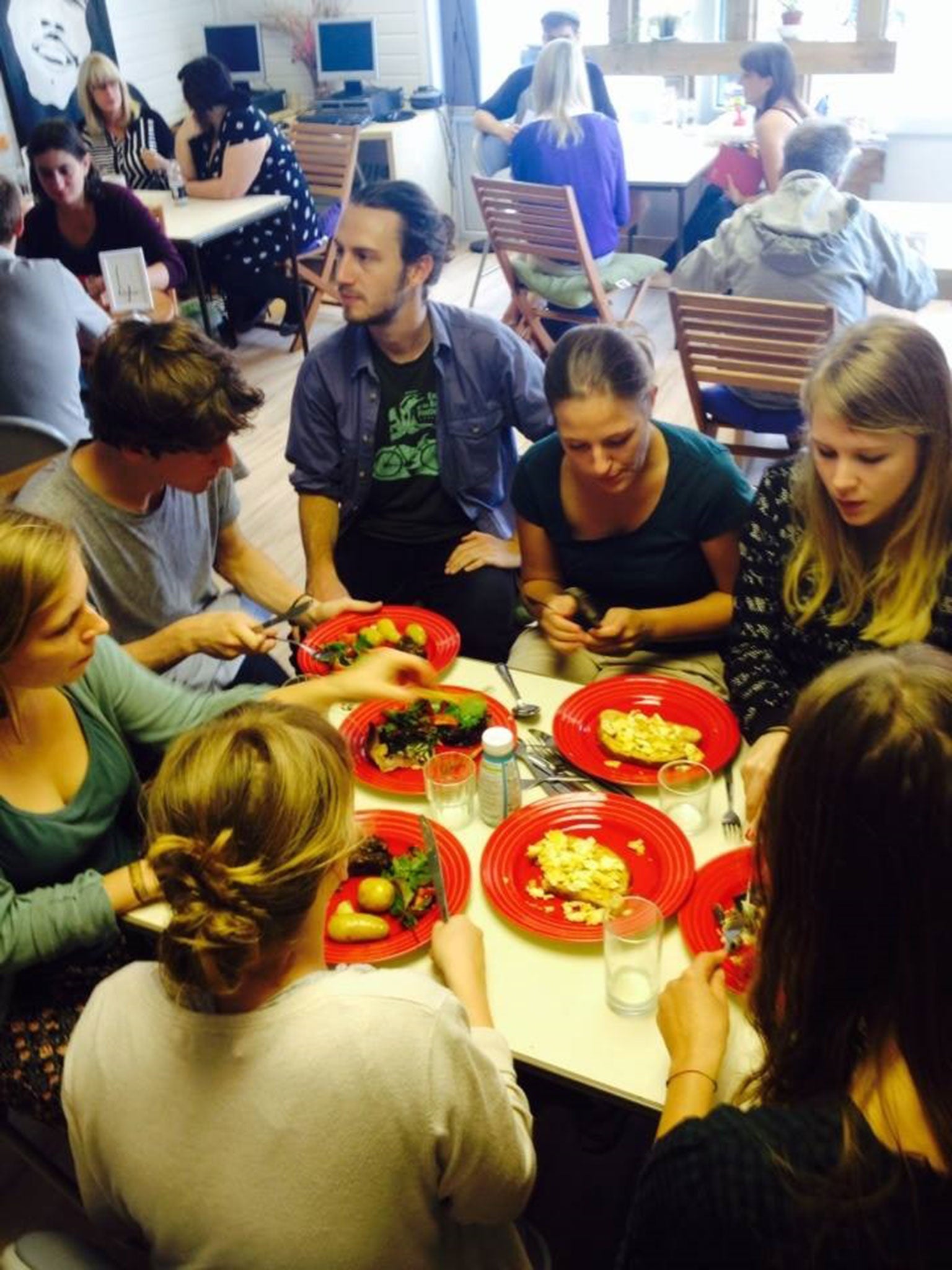The Real Junk Food 'revolution' growing day-by-day: Social cafe movement fed more people in first three months of 2015 than all of last year
The growing Real Junk Food Project empire has fed 21,300 people using 35 tonnes of unwanted food in the first quarter of this year

Your support helps us to tell the story
From reproductive rights to climate change to Big Tech, The Independent is on the ground when the story is developing. Whether it's investigating the financials of Elon Musk's pro-Trump PAC or producing our latest documentary, 'The A Word', which shines a light on the American women fighting for reproductive rights, we know how important it is to parse out the facts from the messaging.
At such a critical moment in US history, we need reporters on the ground. Your donation allows us to keep sending journalists to speak to both sides of the story.
The Independent is trusted by Americans across the entire political spectrum. And unlike many other quality news outlets, we choose not to lock Americans out of our reporting and analysis with paywalls. We believe quality journalism should be available to everyone, paid for by those who can afford it.
Your support makes all the difference.A social cafe movement which uses unwanted food that otherwise would have been thrown away has fed more people in the first quarter of 2015 than the whole of last year.
Adam Smith, founder of the The Real Junk Food Project, and his growing empire of social cafes fed somewhere in the region of 21,300 people in the first three months of this year – using 35 tonnes of food which otherwise would have been thrown away by supermarkets, wholesalers and independent grocers.
In a food waste "revolution" gathering pace every day, and following the result of the general election, Mr Smith expects the number of Real Junk Cafe joints to have increased by more than 400% by the end of the year, from 47 in December to 250, mainly in the UK but also around the world.
The altruistic 'pay as you feel' movement started to gain real traction last year after it was set up by Mr Smith, from Armley, Leeds, in a bid to prevent food waste – and the whirlwind growth appears to show no sign of slowing down.

"We have fed more people in the first three months of 2015 then we did in the whole of last year," he said. "I am dead set on feeding the world."
Interest in the project meanwhile also seems to have grown in other quarters following the result of the 7 May general election, Mr Smith has said.
"We expect to see more and more people wanting to come to us, more people wanting to set cafes up and more companies wanting to get involved with us after the election result," Mr Smith, whose organisation is non-political, said.
"We have had large corporates coming to us saying they want to work with us since last Thursday. It might be a coincidence but I don’t think it is. The fact that things are only going to get worse. They are not going to get better."

Supermarkets have so far been reluctant to work with the group, with Mr Smith describing threatening behavior from some when he and his friends have tried to take food from bins. However, Mr Smith said it was "only a matter of time" before stores changed their tune and joined the movement.
Nandos began working with the project last year and Mr Smith said he was on the verge of striking an agreement with a major food delivery service to receive all their UK-wide unwanted returns from customers for chefs across the network to cook up in their nationwide cafes.
Two national supermarket stores in Leeds have also agreed to send food which would otherwise be binned, and Mr Smith, who recently gave a Ted Talk at the University of Warwick about food waste and the growth of the Real Junk Food Project, believes it is only a matter of time before supermarkets at a head office level realise they should work with the organisation.
"Supermarkets think it will stop people from shopping in their stores if customers can get the food for free, and some do their best to try and stop us intercepting food, pouring bleach and coffee beans over the food they throw away in the bins, for example.
"But actually we're finding it is the opposite way around. We are serving smoked mackerel we intercepted from one big brand store in one of the cafes at the moment and it is by far the favourite among customers. They like it so much they are going to buy it directly from that supermarket now."
"I think it is only a matter of time we feel before supermarkets come on board and work with us," he said.
The warning is timely after ministers at a G8 meeting in Istanbul on 8 May pinpointed food waste as a "great concern" and said nations should make sure excess food waste was given to the hungry instead of being thrown away.
"We highlight this as a global problem of enormous economic, environmental and societal significance," the ministers said.
An all-party report into Hunger in Britain in December said it was "indefensible" that huge numbers of people were going hungry "in a country which wastes such vast quantities of food" and urged retailers and manufacturers to double the proportion of surplus food they redistribute to food assistance providers and other voluntary organisations. However, even with this target, "this would still only amount to using a mere 4% of usable food," the report found.
The Real Junk Food Project started in a cafe in Armley but has since spread across the UK, with eateries in Hull, Manchester, Birmingham, Edinburgh, and internationally in Australia, Brazil and Zurich, with new ones set to open in Cape Town, Denmark, Melbourne, Bali and in St Louis Philidelphia. It is hoping to open its first Leeds City Centre cafe in a couple of weeks with 160 people set to celebrate the opening.
The cafes are headed by chefs who cook meals such as vegetable curry, pulled pork salad and praline profiteroles with the intercepted food.
The cafes implement a "pay as you feel" policy - allowing punters to pay what they feel they can, and if that is nothing, they can help with the washing up, or washing the windows, or doing the electrics.
"It is bringing people from different demographics together that doesn't involve money. People are opening Junk Food Projects because they have had enough of what is going on in society and care about what is happening to other human beings," Mr Smith has previously said. "It is a revolution."
The flagship cafe, recently named the Armley Junk-tion after a customer vote, is also doing well even after the team were forced to fundraise money to buy the building after its landlords wanted to sell it. The company has now raised enough to buy the building with the help of investors and a £120,000 refurbishment beginning this week will see it transformed into a three-storey cafe.
Join our commenting forum
Join thought-provoking conversations, follow other Independent readers and see their replies
Comments